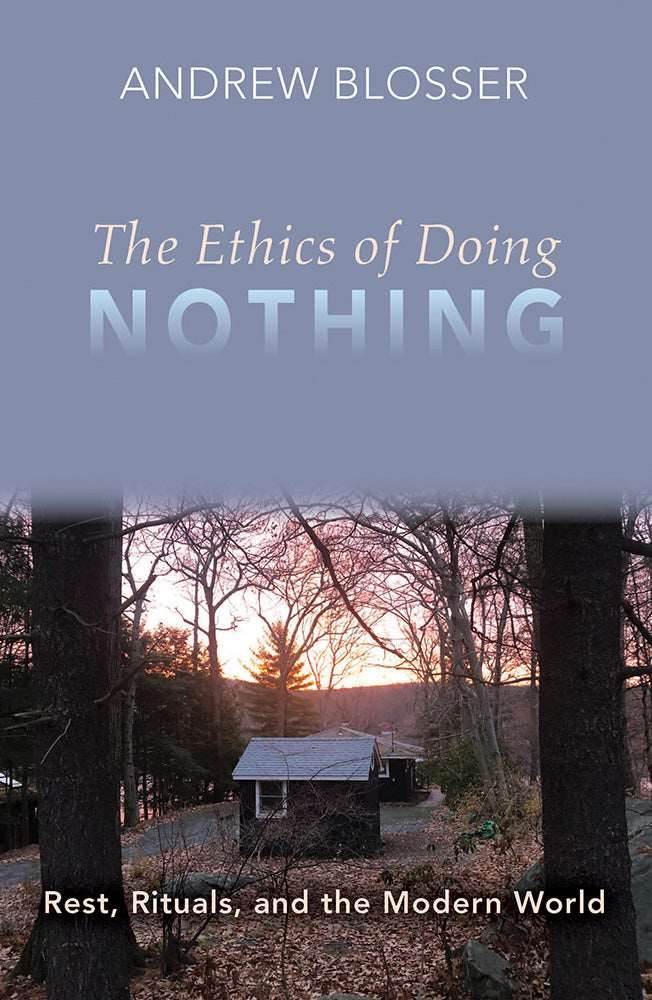The Ethics of Doing Nothing: Rest, Rituals and the Modern World
The Ethics of Doing Nothing: Rest, Rituals and the Modern World
SKU:978-162698-502-5
Couldn't load pickup availability
“In this thought-provoking volume, Andrew Blosser draws readers into an “odd investigation:” reconsidering our culture’s false equation of “work” with “life;” and re-centering ourselves, personally and collectively, on an opposite conviction: “that the point of life is to observe the goodness around us in charitable communion with others.” In fact, our work and social-economic policies ought to enable and serve the higher values of inoperativity, rest, and Sabbath. Far from promoting sloth or passivity, Blosser shows how a critical, theologically grounded “ethics of doing nothing” is essential for animating the “rest-focused activism” and practical changes that addressing systemic challenges like poverty and climate change will require. Insightful, enlightening, readable; highly recommended.”-- Christine Firer Hinze, Professor of Theological Ethics, Fordham University
“Blosser's book offers a rich and sophisticated analysis of rituals of rest that couldn't be timelier or more thought-provoking for us exhausted, overwhelmed moderns.”-- Jonathan Schorsch, Universität Potsdam, and Founding Director of the Green Sabbath Project
“In this insightful, compelling, and timely book, Blosser examines the importance of ‘doing nothing’ as a subversive force that reveals the fundamental nature of the human in a society that would reduce the human to the instrumental and productive. He draws out the (literally) universal implications of this critique, especially for the crisis of climate change. The richest resources for such an ethical critique, he argues, are found in the worship and rituals of religion, particularly those of marginalized groups." --Roberto S. Goizueta, Margaret O’Brien Flatley Professor Emeritus of Catholic Theology Boston College
This book explores the theological and moral significance of practices once familiar to many Christians and Jews, such as Sabbath, vigil-keeping, Shmita (the sabbatical year for the land), and fiesta in relation to the twenty-first century economy. Blosser draws primarily on the Christian theologian, Jurgen Moltmann, and the prominent rabbi and religious thinker, Abraham Joshua Heschel in making the argument that humanity’s obsession with material production has led to three interrelated evils: the exploitation of workers, status anxiety among the middle and upper-classes, and climate change. Blosser’s proposed solution includes returning to “rituals of inoperativity” that will help us “change our understanding of what it means to be human.”
Andrew Blosser has taught religion and ethics at Carthage College and Loyola University Chicago. He is currently visiting assistant professor in the theology department at Marquette University. While completing his PhD in theology at Loyola University Chicago, Blosser worked as a minister and advocate for the homeless community in Chicago.

Related Materials



